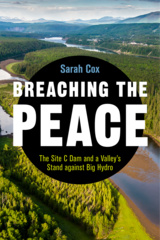
Engagement Organizing
The Old Art and New Science of Winning Campaigns
At any given moment, there are hundreds of campaigns that seek to persuade citizens or decision makers to think, act, or vote in a certain way. But what separates campaigns that win from those that don’t, particularly today when digital tools are breaking down traditional forms of media and opening up new avenues for citizen engagement?
This book shows how to combine old-school people power with new digital tools and data to win campaigns today. Matt Price, with more than two decades of experience working on campaigns of all types, explores the traditions and practices of organizing and how to marry these with digital communication tools to scale up campaigns and win. Over a dozen case studies from NGOs, unions, and electoral campaigns (in both Canada and the US) highlight this work in practice.
At a time of heightened concern about what our future holds and how we can shape it, this book is an indispensable tool for campaigners of all kinds. It also an important resource for those just getting started, who want to apply the principles and practices of engagement organizing to their own campaigns for change.
This book is written for grassroots organizers, NGOs, civil society organizations, unions, political parties, and anyone seeking to mobilize people politically. In higher education, this book will complement more theory-heavy readings to provide tactical, practical, and case-study material.
If you’re involved in making change or building community – from a political party to a school parent advisory committee – you should read the book.
… Engagement Organizing is a relevant and useful resource. It is an accessible mix of theory and practice… [and] provides practical examples of what it means to synchronize an organization’s systems and share power with community.
This is an excellent book for anyone who loves bringing people together for a common cause, not only because of its smart and strategic insights, but because of the integrity of its practices. Rather than a win-at-all-costs approach, Price reminds organizers of the irreplaceable importance of human connections and the consistent practice of values underlying any given social movement. While the proliferation of data offers a breadth of engagement previously unknown, Engagement Organizing reminds us of the depth that can only be achieved through a return to the interpersonal relationships of community organizing.
Engagement Organizing combines substantive and analytical depth with highly readable, concise prose. I expect the book will end up on the shelf of virtually any thoughtful organizer and on the reading lists of many university classes as well.
Matt Price has taken the 20th-century roadmap Saul Alinsky offered activists and turned it into a 21st-century global positioning system.
Getting organized and giving citizens the tools, information, and allies they need to engage in the decisions that shape our future is the most important work of our time. Our climate, our water, and our democracy need this book.
Foreword by Allan R. Gregg
Introduction: Failing Well
1 Organizing Principles and Training
2 Digital and Data
3 Scaling and Networked Communications
4 Disruption in the NGO Sector
5 Rediscovering Union Organizing
6 Electoral Organizing
Conclusion: Getting Started
Appendix: Advice for Rookie (Labour) Organizers
Notes; Further Resources; Index











